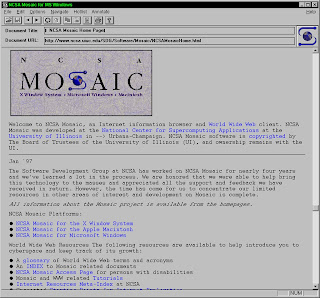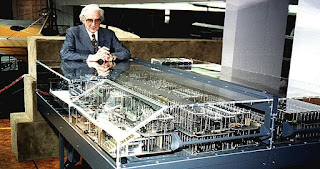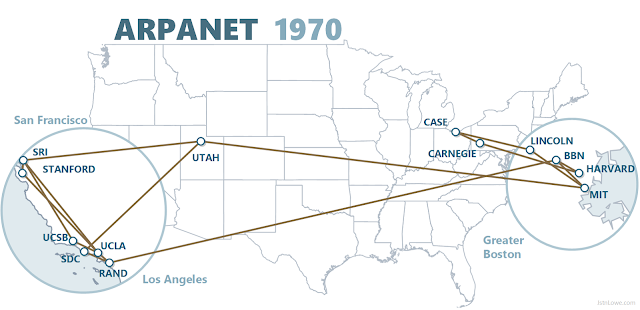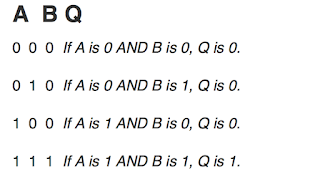Entry 5 - Marc Andreessen: Popularizing The Internet
Description of Topic
When you logged onto your computer today did you think about what web browser you wanted to use? You probably are using one of the major browsers that exist today, like Google Chrome, Mozilla FireFox, or Safari. However, these browsers were not always the major popular browsers. Back in the early 90s, the internet was dominated by a web browser named Mosaic. Mosaic was not the first web browser to be created, but it was the first to become widely used, and Mosaic's success is one of the largest reasons that the internet became so popular. (2)
Mosaic was created by an internet pioneer named Marc Andreessen. Andreessen was born in Iowa in 1971, and chose to attend the University of Illinois at Urbana-Champaign for his undergraduate studies. While at the University of Illinois, Andreessen started working at the National Center for Supercomputing Applications (NCSA), a government funded entity associated with the University that aims to develop computer infrastructure in order to advance the field of computing as a whole. Andreessen and some of his peers at the time looked at Tim Berners-Lee's WorldWideWeb, the first web browser ever created, and were huge fans. However, they saw some things that they thought could be improved, mainly the poor user interface that the WorldWideWeb had. From there, Andreessen developed Mosaic, a new web browser that allowed for both images and text to be viewed on the screen at the same time. Mosaic also created hyperlinks, which allow for users to click on a word and be taken to a separate web page.(6) Mosaic was made available as a free download in January of 1993, and its success was massive. Almost immediately, it hit 5000 downloads a month, growing the network and making the internet more user friendly. Andreessen and his colleagues also developed Mosaic to be available on different computer platforms including Mac and PC, which was huge because past internet browsers had only been able to run on Unix machines, which were more expensive and less likely to be owned by everyday consumers than a Mac or a PC.(2) This user friendly focus allowed Mosaic to become the dominant web browser of the time.
Relation to Computer Science
While the Mosaic web browser was not the first web browser and didn't make many huge technological advancements, the small changes it made in regards to its user interface were huge in bringing computers and the internet into popular society. The internet had previously been a space that was mostly used by scholars in the technological community and without Mosaic coming around, it may not have blown up into the massive market that it is now. This brought many users to the World Wide Web, and made it extremely attractive and profitable to create products or services on the internet. Making this profitable to companies incentivized people to enter the online market and drove growth in other aspects of technology.
References
2: “Mosaic -- The First Global Web Browser.” Mosaic Web Browser History - NCSA, Marc Andreessen, Eric Bina, www.livinginternet.com/w/wi_mosaic.htm.
6: “NCSA Mosaic of Marc Andreessen and Eric Bina.” History of Computers and Computing, Internet, Internet Conquers the World, NCSA Mosaic, history-computer.com/Internet/Conquering/Mosaic.html.
7: “Press Room.” National Center for Supercomputing Applications at the University of Illinois, University of Illinois At Urbana-Champaign, www.ncsa.illinois.edu/news/press#mosaic.




Comments
Post a Comment